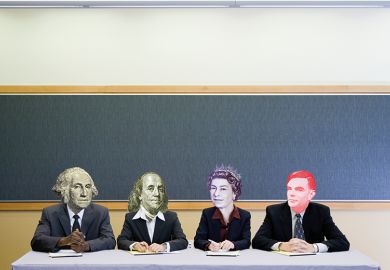Imagine this scenario: a search for a new vice-chancellor or president is under way at a university. A candidate visits campus and is perceived by a board member as being overly ambitious and narcissistic.
However, a subsequent personality test reveals that while the candidate is ambitious, that ambition is reserved not necessarily for self but channelled into whatever organisation he or she is affiliated with. The candidate is hired.
Although the practice remains unusual, more colleges and universities than in the past are considering using psychological assessments or personality tests as they search for the next leader of their institution, Inside Higher Ed reports.
Lucy Leske’s firm, Witt/Kieffer, offers leadership assessments as a standard part of their presidential search package. Although search committees decline the service more often than not, she says that more and more of them are beginning to embrace the practice.
Other search firms also report increased interest in assessments, but such interest is often superseded by concerns over whether personality assessments are accurate predictors of a candidate’s behaviour.
The practice, while common in the corporate world, remains an outlier in higher education, although it appears to be slowly gaining ground.
Jessica Kozloff, president of higher education search firm Academic Search, said that in the past year at least three clients have expressed interest in personality assessments.
Although more governing boards and search committees are embracing personality tests, scepticism about the practice is prevalent.
Stephen Joel Trachtenberg, who spent two decades as the president of George Washington University, is a consultant with search firm Korn Ferry. He has worked on about 30 searches for the firm, and in each one boards have declined to have their finalists undergo a psychological assessment.
“The professors on the search committees, most of the time, see it as somehow totalitarian, a variation on Big Brother, and an intrusion into the inner mind,” Trachtenberg said. “They don't trust it even though we believe we can demonstrate, empirically, the validity of the test.”
Register to continue
Why register?
- Registration is free and only takes a moment
- Once registered, you can read 3 articles a month
- Sign up for our newsletter
Subscribe
Or subscribe for unlimited access to:
- Unlimited access to news, views, insights & reviews
- Digital editions
- Digital access to THE’s university and college rankings analysis
Already registered or a current subscriber? Login




